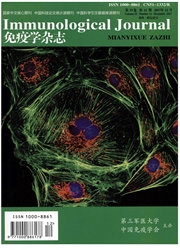

 中文摘要:
中文摘要:
AIM:To observe the effect of vincristine on hepatitis B virus(HBV) replication in vitro and to study its possible mechanisms.METHODS:Vincristine was added to the cultures of two cell lines stably expressing HBV.Then,the levels of hepatitis B surface antigen(HBs Ag),hepatitis B e antigen(HBe Ag),and hepatitis B core antigen(HBc Ag) in the supernatants or cytoplasm were examined using by enzyme-linked immunosorbent assay and Western blot.The HBV pregenome RNA(pg RNA) was detected using reverse transcription-PCR and realtime fluorescent quantitative PCR(RT-q PCR),and viral DNA was detected using Southern blot and RT-q PCR.Cell proliferation after drug treatment was detected using the Brd U incorporation test and the trypan blue exclusion assay.Cell cycle and cell apoptosis were examined using flow cytometry and Western blot.RESULTS:Vincristine up-regulated HBV replication directly in vitro in a dose-dependent manner,and 24-h exposure to 0.1 μmol/L vincristine induced more than 4-fold and 3-fold increases in intracellular HBV DNA and the secretion of viral DNA,respectively.The expression of HBV pg RNA,intracellular HBs Ag and HBc Ag,and the secretion of HBe Ag were also increased significantly after drug treatment.Most importantly,vincristine promoted the cell excretion of HBV nucleocapsids instead of HBV Dane particles,and the nucleocapsids are closely related to the HBV pathogenesis.Furthermore,vincristine inhibited the proliferation of cells stably expressing HBV.The higher the concentration of the drug,the more significant the inhibition of the cell proliferation and the stronger the HBV replication ability in cells.Flow cytometry indicated that cell cycle arrest at S-phase was responsible for the cell proliferation inhibition.CONCLUSION:Vincristine has a strong stimulatory effect on HBV replication and induces cell cycle arrest,and cell proliferation inhibition may be conducive to viral replication.
 英文摘要:
英文摘要:
AIM:To observe the effect of vincristine on hepatitis B virus(HBV) replication in vitro and to study its possible mechanisms.METHODS:Vincristine was added to the cultures of two cell lines stably expressing HBV.Then,the levels of hepatitis B surface antigen(HBs Ag),hepatitis B e antigen(HBe Ag),and hepatitis B core antigen(HBc Ag) in the supernatants or cytoplasm were examined using by enzyme-linked immunosorbent assay and Western blot.The HBV pregenome RNA(pg RNA) was detected using reverse transcription-PCR and realtime fluorescent quantitative PCR(RT-q PCR),and viral DNA was detected using Southern blot and RT-q PCR.Cell proliferation after drug treatment was detected using the Brd U incorporation test and the trypan blue exclusion assay.Cell cycle and cell apoptosis were examined using flow cytometry and Western blot.RESULTS:Vincristine up-regulated HBV replication directly in vitro in a dose-dependent manner,and 24-h exposure to 0.1 μmol/L vincristine induced more than 4-fold and 3-fold increases in intracellular HBV DNA and the secretion of viral DNA,respectively.The expression of HBV pg RNA,intracellular HBs Ag and HBc Ag,and the secretion of HBe Ag were also increased significantly after drug treatment.Most importantly,vincristine promoted the cell excretion of HBV nucleocapsids instead of HBV Dane particles,and the nucleocapsids are closely related to the HBV pathogenesis.Furthermore,vincristine inhibited the proliferation of cells stably expressing HBV.The higher the concentration of the drug,the more significant the inhibition of the cell proliferation and the stronger the HBV replication ability in cells.Flow cytometry indicated that cell cycle arrest at S-phase was responsible for the cell proliferation inhibition.CONCLUSION:Vincristine has a strong stimulatory effect on HBV replication and induces cell cycle arrest,and cell proliferation inhibition may be conducive to viral replication.
 同期刊论文项目
同期刊论文项目
 同项目期刊论文
同项目期刊论文
 期刊信息
期刊信息
